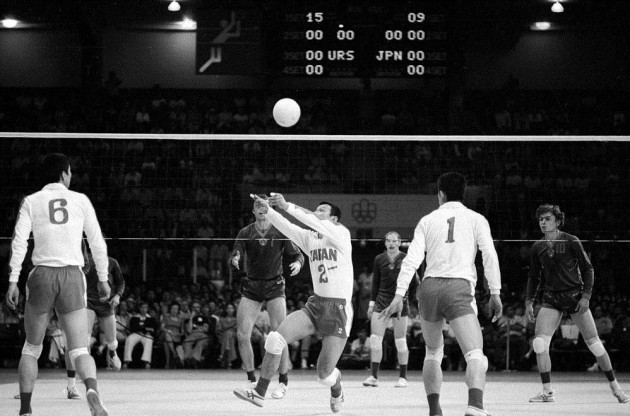
Canada falls in love with volleyball
As the tournament went on the number of spectators increased, culminating in an attendance of 15,602 to witness Poland take the men’s title and Japan the women’s.
On the day of the finals the sound inside Montreal’s Forum was akin to a Canadian international ice hockey match, and the 150,056 spectators who attended the 24 matches represented no less than 92 per cent capacity.
Long to be remembered was the performance of the Polish men who, having beaten Japan in the semifinal in a match lasting 2 hours and 23 minutes, won the gold medal by beating the USSR the following day in a match lasting 2 hours and 26 minutes.
Prior to the final the USSR had not dropped a set, while Poland had been taken to five sets in three of their matches.
The pivotal moment came with the Soviets leading by two sets to one and 15-14 in the fourth, just a point from a third Olympic gold medal. But Poland’s star man, Tomasz Wojtowicz, then smashed a long spike from behind the 10-foot line, Poland went on to take the set 19-17 and the match 3-2 (11-15, 15-13, 12-15, 19-17, 15-7). Bursting on to the international stage were Cuba, who took a well deserved bronze medal.
The women’s competition, remarkably, saw Japan and the Soviet Union in the final for the fourth Olympics out of four. Japan had won the inaugural event in Tokyo in 1964 and the USSR had taken the following two. This time, led by Takako Shirai whom many considered the best player in the world, Japan dominated the tournament. Only once did an opponent (South Korea, who took the bronze medal) reach double figures in a set and Japan beat the USSR 3-0 (15-7, 15-8, 15-2) in the final.